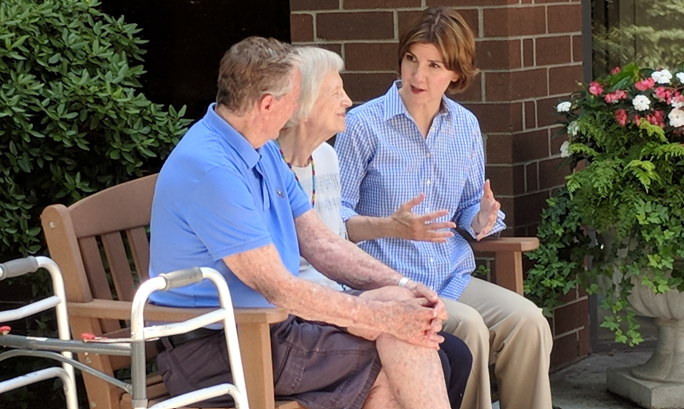at 612-315-3037 or
www.swansonhatch.com

Attorney General Lori Swanson was one of the most active Attorneys General in the country on the issue of charities regulation. She investigated and filed lawsuits or reached settlements with dozens of charities and related actors during her tenure as Attorney General.
She liked to remind Minnesotans that one of the oldest statutes in Anglo-Saxon jurisprudence is the Charitable Uses Act, a/k/a Statute of Elizabeth, adopted by Queen Elizabeth I in 1601. In that year, the Queen identified two major goals of our Anglo-Saxon culture. First, there was the Poor Law of 160, which articulated the concept of need and relief that remain with us today. The second was the Charitable Uses Act, which was an effort to encourage aid to the poor. The Act delineated the proper functions of a charity and, most important, provided a mechanism to make trustees accountable for the appropriate administration of charitable assets.
Sadly, no matter how many remedial actions are taken by the government, shady operators continually look for ways to pilfer money donated for good causes. In many cases, the principals running the organizations are fundraisers who run direct mail, telemarketing, and internet pop-up solicitations. The Tampa Bay Times and The Center for Investigative Reporting broke up the types of charitable causes exploited by such players into five main categories: children, cancer, police, veterans, fire and other. In 2017, the Tampa Bay Times wrote:
Even as they plead for financial support, operators at many of the 50 worst charities have lied to donors about where their money goes, taken multiple salaries, secretly paid themselves consulting fees or arranged fundraising contracts with friends. One cancer charity paid a company owned by the president's son nearly $18 million over eight years to solicit funds. A medical charity paid its biggest research grant to its president's own for-profit company.
As demonstrated by Attorney General Swanson, even charities that don’t make the national “50 worst” list can be a disappointment. The following is a Whitman’s Sampler of the type of cases brought by her office:
ABC Humanitarian Trust. Shortly after taking office in 2007, Attorney General Swanson filed a lawsuit against ABC Humanitarian Trust. The trust advertised in local newspapers that it was seeking automobile donations to help support local non-profit organizations. In fact, the lawsuit alleged that the organization operated a for-profit car dealership and repair business that profited from the donations. The advertisements claimed that “We work with the United Way” which of course never happened. The organization was shut down as a result of the lawsuit.
Ashmore Family Foundation. One week after the lawsuit against ABC Humanitarian Trust, Swanson sued the Ashmore Family Foundation. The suit alleged that the charity secured “loans” from contributors which the Foundation promised would return a high rate of return—as high as 72%--with the money being donated to charity. The foundation raised more than $400,000. One family contributed $52,000 to the Foundation, an amount represented by the family to be their life savings. In fact, the lawsuit could only identify charitable expenditures made by the Foundation to a $1,000 donation to a gym and a “charitable youth hunt” attended by one boy.
Fresh New Taste, LLC. In 2015, Swanson sued Fresh New Taste, LLC, an organization that purported to sponsor “mud runs.” The organization represented that it would contribute its proceeds to a small Wisconsin charity, but failed to keep its promises to do so, according to the charity. The organization was closed.
A Brighter Day Foundation. In 2014, Attorney General Swanson filed a lawsuit against A Brighter Day Foundation (ABDF), an organization that was started in 1995 with the goal of bringing high-achieving students from the inner-city to attend high school in Eden Prairie. By 2013, the charity was not assisting children as promised. Instead, the lawsuit alleged that the Eden Prairie man who managed the charity diverted tens of thousands of dollars for personal use After lengthy court proceedings, the charity was closed and the organizer was banned from participating in charities as a board member or employee.
Savers. In June of 2015, Swanson settled a lawsuit with Savers, Inc. Savers, a for-profit company, operated thrift stores throughout the country in which it sold donated clothing and household products to the public. The lawsuit alleged that Savers misrepresented the benefit that donations of clothing and household goods would have on the charities whose identities Savers advertised in its stores. The case settled with an agreement that the company be more transparent in the amount of donations that were directed to any charity receiving funds from Savers.
It was estimated that Americans gave more than $389 billion to charity in 2017, with individual donations (as opposed to corporate or foundation donations) representing three-fourths of this total. The vast majority of charities do good and important work. But some do not. In addition to filing lawsuits, Swanson’s office audited and performed compliance reports on non-profits and provided advice on compliance with applicable laws. Because there is money to be made by disreputable actors, this is an area where state and federal regulators nationwide must remain vigilant to make sure that hard-earned donations are protected.
REFERENCES: